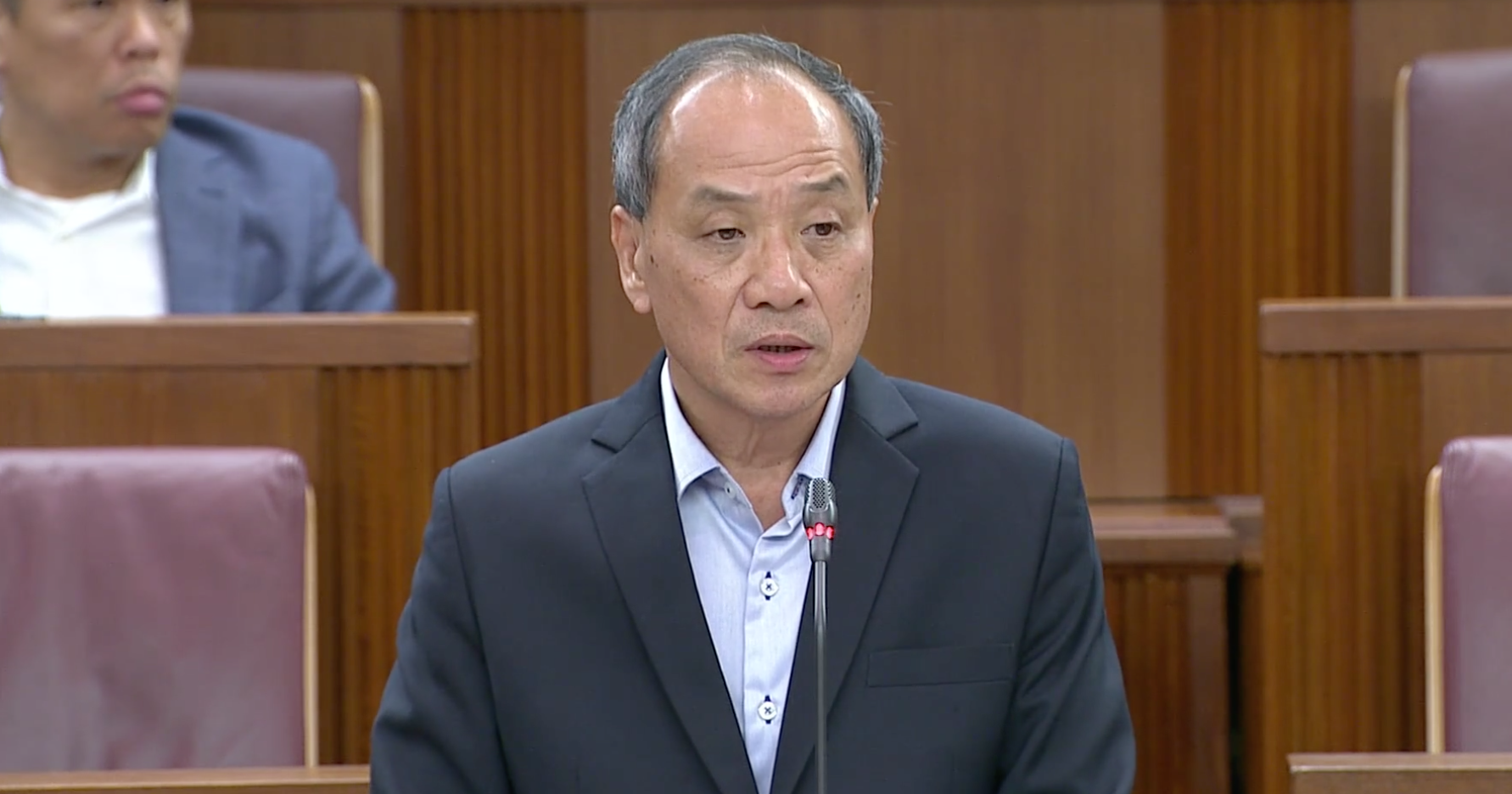The Protection from Online Falsehoods and Manipulation Bill (POFMA) has been extensively debated online and offline.
In Parliament, the Minister of Home Affairs and Law K Shanmugam made a long, wide-ranging speech on POFMA, highlighting why the law is needed to retain trust in institutions.
During the parliamentary debate, Workers’ Party (WP) Secretary-General Pritam Singh announced that his party would oppose the bill, and explained that the court, not the executive, should act as the decision-maker.
Proposed POFMA bill is 'disappointing' and 'worrying'
Enter elder statesman Low Thia Khiang, MP of Aljunied GRC.
The former WP sec-gen raised concerns over the intent of this bill in Parliament on May 7, 2019, which was delivered in Mandarin.
Low said that the proposed bill is "disappointing" and "worrying" even though WP agrees to the need to deter online falsehoods and manipulation.
"The Workers' Party opposes the POFMA. We agree that it is necessary to create a law against those who fabricate online falsehoods that will hurt the political system and multi-racial society, foreigners who try to manipulate elections as well as to enforce tech companies to regulate extreme comments that can hurt our social fabric. However, we are very disappointed and surprised at this bill that the government proposed in Parliament."
Low also highlighted that the definition of fake news lacks clarity and too all-encompassing.
He further questioned if the government is really interested to engage members of the public on this matter.
Low quipped:
"Actually, the government does not have any interest to conduct an in-depth discussion in this area. They only want the people to give them the control to decide."
Bill widens the powers of government
Low observed how Minister K Shanmugam argued that the bill narrows the powers of the government, and highlighted some caveats to the interpretation:
'The truth is, however, if we pass this bill, the government will retain the same powers under existing legislation which are not removed because of POFMA.
Most importantly, the other bills can be targeted at websites or organisations but POFMA is targetting at individuals on social media platforms.
What's most worrying about this is the fact that this bill, as the Minister of Law also said, is calibrated.'
He added that the bill allows a minister to have the "absolute power" to determine and judge what is fake news and what kind of actions to take using an analogy of one being a football player and a referee at the same time.
He also questioned how one can be certain that the minister from the PAP will not manipulate and spread fake news in a bid to win the election.
While Low understood that there will be an appointed civil servant during the election, one cannot guarantee whether the civil servant will not be self-serving during such a period.
Hidden political agenda
Low also highlighted that, from WP's point of view, the bill has a political agenda against online critics:
'The Workers' Party views the proposed bill as not only a move to meet the above-mentioned challenges but one with a hidden motive to deter criticism on social media.
When the bill was first proposed, the mainstream media was quick to emphasize the harsh punishments that might be meted out. In the future, as long as the government chooses to punish some offenders, they can 'kill the chicken to warn the monkey'*. This will make others hesitant and self-censor their comments. The true agenda behind to pass this bill is to protect the People's Action Party (PAP) and achieve political monopoly.'
*A Chinese idiom that means to punish an individual to warn others of what will happen to them too if they do the same.
Embrace the online discussion
Low highlighted that people have been discussing politics offline and in private.
On a more positive note, the online discussion shows Singaporeans feel more empowered to speak up.
As such, this is a significant step towards a more democratic and open society than before:
Today, multifold fabricated and false information that inundates the internet has indeed posed a new challenge for the political system and managing of the society.
However, one should not forget that the internet and social media also empowers Singaporeans to discuss politics and ensure accountability from the government.
This is the positive development that technological advancement brings to democracy.
The discussion on politics is no longer restricted to coffee shops and no longer requires three glasses of alcohol for one to speak unceasingly. Doubts about the government or political holders are also not expressed in whispers in the streets or alleys.
This signifies that Singaporeans have moved on from the white fearful past when the government uses internal security act, no longer have to fear of being interrogated by the court or being detained for a long period of time at the will of a minister.
This is a big step towards democracy and openness for Singapore.
Low expressed that what the government should do is to inculcate a habit among Singaporeans to be more discerning with online information and not to react hastily to it.
In response to fake news, Low added that the relevant agencies and ministers can clarify on what is the truth and their stance on the matter.
This will naturally dispel the falsehoods and netizens can learn from it.
You can read the full speech in Mandarin here.
Top photo from CNA video screenshot
If you like what you read, follow us on Facebook, Instagram, Twitter and Telegram to get the latest updates.
